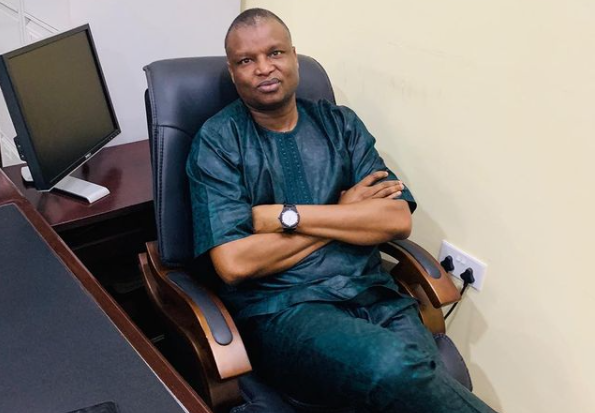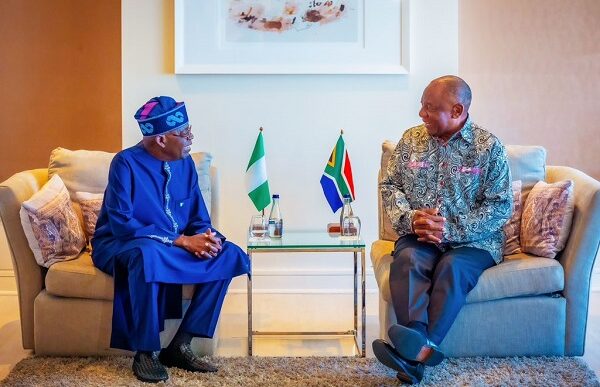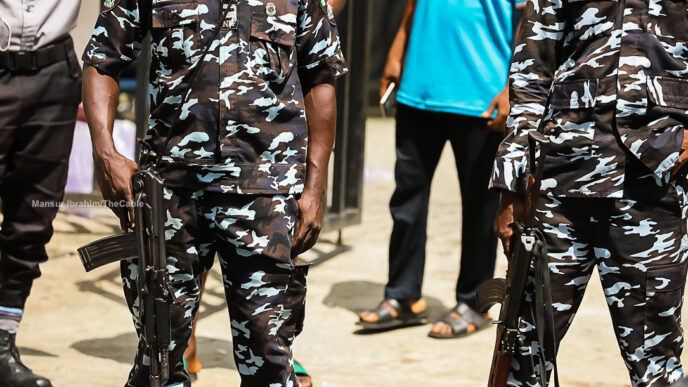A federal high court in Abuja has refused to grant bail to Abba Kyari, suspended deputy commissioner of police (DCP).
Kyari was arrested on February 14, 2022, after the NDLEA declared him wanted over alleged links to an international drug cartel.
On March 7, 2022, Kyari was arraigned alongside Sunday Ubia, Bawa James, Simon Agirigba, and John Nuhu, who are members of the police intelligence response team (IRT).
Others are Chibunna Patrick Umeibe and Emeka Alphonsus Ezenwanne, two suspected drug traffickers who were arrested at Akanu Ibiam International Airport, Enugu.
Advertisement
Upon arraignment, Kyari and four other defendants pleaded not guilty.
However, Umeibe and Ezenwanne, the sixth and seventh defendants, pleaded guilty and were convicted accordingly.
Since then, the bail applications of the defendants have been rejected.
Advertisement
The presiding judge refused to grant the defendants bail for the second time of asking after they argued that their lives were being threatened by criminals arrested by Kyari’s team.
The court of appeal in Abuja also dismissed Kyari’s appeal for bail.
Recently, the court granted a two-week bail to the suspended DCP to enable him conclude the burial rites of Yachilla Kyari, his mother, who died on May 5.
Kyari had filed another application seeking bail.
Advertisement
He submitted that he had spent two years in pre-trial detention by March 7, far above the one year specified for “exceptional circumstances” in the Administration of Criminal Justice Act (ACJA) 2015 — even for a person charged with a capital offence.
He also argued that the court’s previous reason for denying him bail — which was that he may intimidate the witnesses — can no longer stand since 15 of the prosecution’s 16 witnesses have testified.
He further argued that his continued detention violates his fundamental human rights.
THE RULING
Advertisement
Delivering a ruling on Wednesday, Emeka Nwite, presiding judge, held that the defendants had not placed sufficient materials before the court.
Nwite held that the discretion of the court remains throughout a criminal trial, which can always be exercised on the merit of each case.
Advertisement
“The question begging for an answer at this juncture is, having addressed these issues in the court rulings of 28th of March, 2022 and 30th of August, 2022, what has changed to distort my findings in the two rulings?” the judge asked.
The judge said even though Kyari stated in his affidavit that the trial had lasted for two years and that the prosecution had called 15 of its 16 witnesses, Section 161 (2)(b)(c) cited by the applicant only speaks to offences punishable by death.
Advertisement
He said by juxtaposing Section 161 with Section 35(1) of the 1999 Constitution, one would see that there was no breach of the provisions of Section 161(2)(b)(c).
“Section 35(1) states that a person who is charged with an offence and has been detained in lawful custody and awaiting trial shall not continue to be kept in such detention for a period higher than the maximum period of imprisonment,” the judge said.
Advertisement
“It is not in dispute that the offence which the 1st defendant/applicant is charged carried a maximum punishment of 25 years.”
Nwite added that having addressed the issues in his earlier rulings, he was of the view that nothing had changed significantly.
The judge ordered that the trial be given accelerated hearing.










